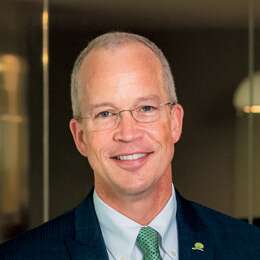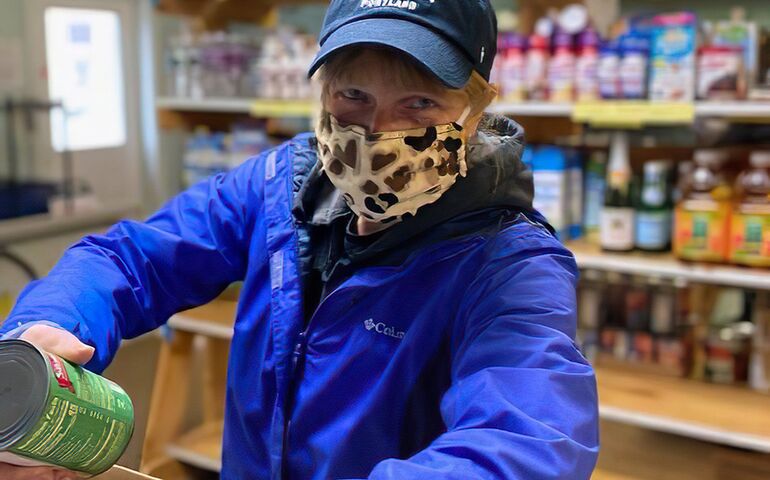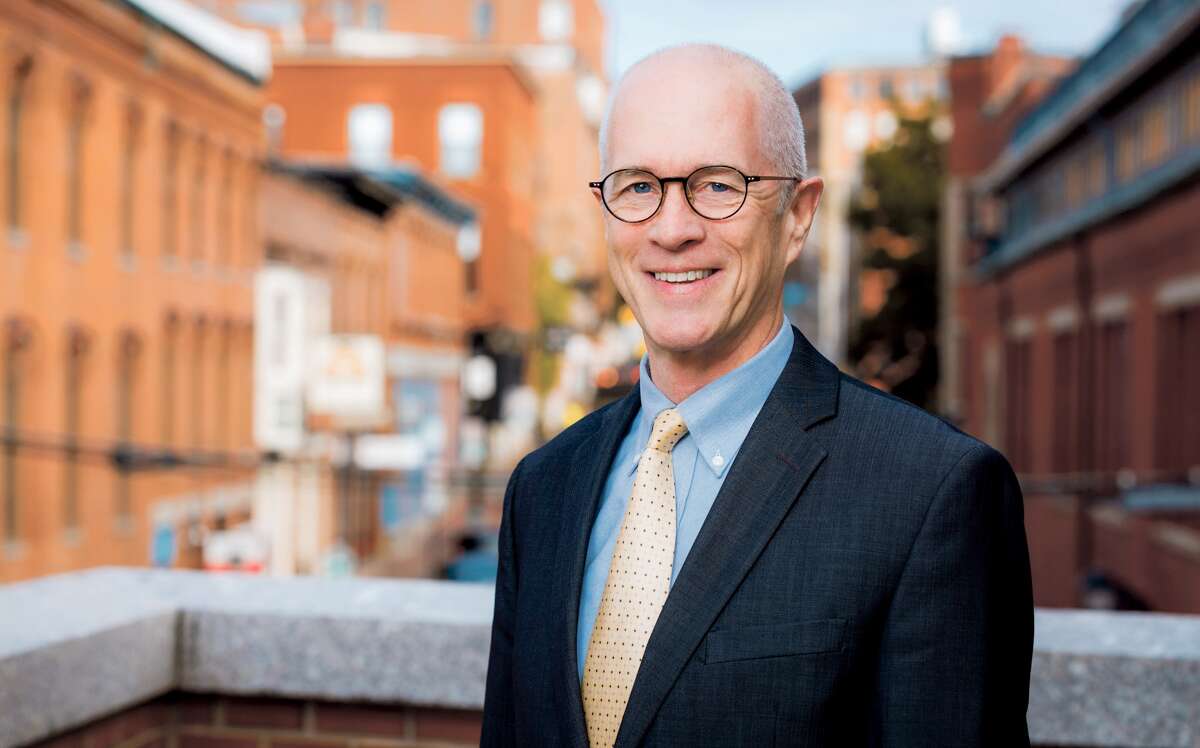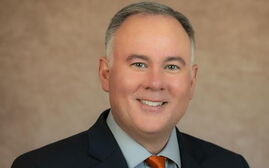
‘We’ve got your back’: How some companies, foundations respond to the pandemic
 Courtesy / Machias Savings Bank
Machias Savings recognized early in the pandemic that food relief was a major issue and mobilized people to help out.
Courtesy / Machias Savings Bank
Machias Savings recognized early in the pandemic that food relief was a major issue and mobilized people to help out.
Few sectors were hit as hard by the pandemic as nonprofits.
Nonprofits contribute $12 billion a year to the state’s economy, according to the Maine Association of Nonprofits. One out of every six Maine workers is employed by a nonprofit. That means some 98,000 jobs in the state are held by nonprofit workers. Additionally, nonprofits pay $4.7 billion annually in wages.
But while nonprofits are an important part of Maine’s economy, they remain some of the most vulnerable entities. This fact was brought to light in a startling way during the COVID-19 outbreak.
Some of the nonprofits most strained by the pandemic are ones serving individuals recovering from substance addiction or domestic abuse or people who need mental health services or food for their families.
Light at the end of the tunnel
Amid the chaos of the pandemic, corporate sponsors and foundations responded to the needs of many nonprofits.
Bill Whitmore, Maine market vice president of Harvard Pilgrim Health Care, shared several ways in which the organization assisted nonprofits throughout the state in recent months.
Though Harvard Pilgrim is itself a nonprofit, its foundation was able to give to communities in Maine. Like all businesses, this wasn’t easy during a time when so much was in flux. Still, helping nonprofits who were struggling was of prime importance to Harvard Pilgrim, which is based in Wellesley Hills, Mass. It typically donates $500,000 annually to nonprofits in Maine. During the pandemic has focused on continued access to food through food banks, food pantries and community gardens.
“Back in March our CEO, Michael Carson, jumped in very quickly,” says Whitmore. “We contributed $250,000 to a handful of organizations that we knew could use the money immediately.”
Good Shepard Food Bank was one of these nonprofits. Others included the United Way of Portland and the United Way of Eastern Maine, along with the Boys and Girls Club in Portland.

Kennebunk Savings Bank also stepped quickly to assist nonprofits during the pandemic. Brad Paige, president and CEO, says this was a challenge, as the bank and its staff were struggling to keep up with rapid changes.
“Banks aren’t known for being able to turn on a dime,” says Paige. “Being agile and responsive to what was going on was key.”
Back in January, prior to the pandemic shutdown, the bank had begun an initiative to try out remote working. Fast forward to March and within a period of two weeks, 220 bank employees were working from home. That number doesn’t include branch networks.
“There were another 140 employees who were affected as we figured out what to do with the branches,” says Paige.
Despite the challenges, Kennebunk Savings began giving back to communities in Maine as quickly as it could.
“This year we were scheduled to give $1 million back to communities,” Paige noted. “When everything started happening with COVID-19, it started to go quiet very quickly. And when it went quiet we realized that there were still all of these organizations out there that need this funding.”
Understanding the demand, the bank responded by supporting nonprofits as nimbly as possible. The message to nonprofits was clear: “It doesn’t matter if you have the event or not. That money is still committed to your organization.”
At Machias Savings Bank, leadership and employees recognized how worried their customers were.
“We were one of the first companies in the country to produce and share a video from our CEO [Larry Barker], speaking from his home, shot with an iPhone,” says Charlene Cates, vice president of marketing and community impact. “At the end of one of them he even gave out his personal cell phone number and says, ‘Call me,’ if they didn’t know who else to call at the bank.”
The videos became an ongoing avenue of reassurance, education and support to customers. Outside of the bank walls, however, food was a major issue.
“Within days of the pandemic’s ‘official start’ we were hearing from our many partners in food security and distribution across the state with a plea for help,” says Cates.
Machias Savings created its Rapid Relief Fund to address this and other issues. It launched three $100,000 grant initiatives. The first had 131 applications, 42 of which were awarded.

How corporate sponsors and foundations continued to give
More giving followed these organizations’ original efforts. In April, Harvard Pilgrim opened a grant program to nonprofits throughout the state. It was run on a first-come, first-serve basis and grantees could apply for up to $10,000. The need had to be expressed, as something a nonprofit was doing to help communities during the pandemic.
“We made the grant application process very easy and very quickly got the money into their hands,” says Whitmore.
The grants were opened and accounted for within two days.
But Harvard Pilgrim wasn’t finished. It helped support the Portland nonprofit Cooking for Community. The nonprofit opened shortly after the state enacted COVID-19-related closures. The premise was simple: raise money and pay restaurants to make food for vulnerable populations while sourcing as much of the food possible locally. This not only helped those receiving the meals but the restaurants which stayed open with skeleton crews.
There are currently nine restaurants involved with 27 people employed, and approximately 2,000 meals being delivered weekly.
“It really is a win-win-win,” says Whitmore. The most recent wave of donations by Harvard Pilgrim contributed $700,000 to each of three community health centers in Lewiston, Portland and Bangor.
After reassuring the nonprofits it sponsors that their funds were coming no matter what, Kennebunk Savings turned to other areas where it could have the greatest positive impact. HAVEN and Caring Unlimited, both domestic abuse organizations, were sent $5,000 each.
“It helped them respond to their clients in a very quick, nimble and effective way,” says Paige.
The bank also looked at the technology needs — and gaps — that nonprofits were dealing with.
“We were very aware of how challenging it was for them organizationally,” says Liz Torrance, community relations and social responsibility manager at Kennebunk Savings. This “new normal” requires a lot of technology and not all nonprofits had what was needed to continue serving clients.
An important next step then, was making the space for nonprofits to continue delivering their services in a virtual way, says Torrance. Counseling-intensive nonprofits were a focus for Kennebunk Savings.
“We were able to facilitate these nonprofits getting virtual much like we did at the bank,” says Paige.
At the same time, Machias Savings launched the second and third phases of its Rapid Relief Fund grants. The second wave of grants had 56 applications and 32 awards. The third focused on nonprofits serving Maine’s small businesses and entrepreneurs, stated Cates. There were 19 applications and 14 awards for this group.
“All told, $300,000 has been distributed to date,” says Cates.
Though the bank was queried by many out-of-state organizations due to the national press it received across the country, Cates stated that all dollars were kept in Maine.
Additionally, the bank delegated approximately one-third of its workforce to create a new division to service and administer the demands for Paycheck Protection Program, says Cates.
“We accepted customers and non-customers alike, from big to very, very small. Our teams literally worked 24/7,” Cates says.
Every applicant had a personal banker, Cates says, and a new section of the bank’s website was dedicated strictly to ongoing education and clear direction for this new venture.
Machias Savings secured 8% of Maine’s entire PPP allotment, primarily for small-business owners, self-employed and entrepreneurs, Cates says. That translated to $160 million in funding for 2,230 businesses, saving almost 20,000 jobs.
Looking forward
One can’t help but wonder, as Maine looks at a continually changing business landscape during the pandemic, if there are benefits to be found.
“People have gotten to know each other better,” Whitmore says.
And while many miss the daily camaraderie found in the office, he believes that the bonds Harvard Pilgrim staff have built during this time are deeper than ever. It’s also shown the team in large and small ways, what they are capable of. For example, a new salesperson started in April and no one on the team has yet met her in person.
“Onboarding has certainly been harder,” says Whitmore, “but many team members jumped right in to help.”
Paige says that Kennebunk Savings has always talked a lot about its culture and purpose. But COVID-19 helped the bank’s employees to see that culture and purpose in action.
“It’s caused a lot of organizations to determine what’s really important,” says Paige.
Silver linings in the pandemic have been numerous in the business world, Cates says, if one chooses to look for them. Learning to pivot successfully, seizing new opportunities, and the adoption of new work technologies have all benefited many organizations.
“In thousands of organizations, including ours, this is leading to long-term adoption of new practices and protocols,” says Cates. “Because they work better.”














0 Comments